What Is Alpha Search?
This article aims to assist you with the elimination of Alpha Search redirect from affected browser and OS. Make sure to follow the guide at the end to get rid of this unwanted program entirely.
Alpha Search is an irritating redirect that disturbs searching sessions so that it can advertise deceptive services, such as dfo.donemace.net. Its search page in the web browser could be triggered by an undesirable program that is operating on your system. Such programs usually deceive you to install them together with various other wanted third-party applications.
As we discussed one of the most possible reasons you may experience all those web browser reroutes to the domain name Alpha Search is a potentially undesirable program established on your device. Such programs are mainly developed to trick you into installing them without even noticing. To do this, software bundling is often used in order to advertise those programs as “free extras” or “optional offers” added to the current installation.

Alpha Search Summary
| Name | Alpha Search |
| Type | Browser Hijacker |
| Short Description | Aims to modify the settings on your web browser in order to get it to cause browser redirects and display different advertisements. |
| Symptoms | Your web browser begins to display various types of online advertisements, which results in slowing down of your PC. |
| Distribution Method | Bundled downloads. Web pages which may advertise it. |
| Detection Tool |
See If Your System Has Been Affected by malware
Download
Malware Removal Tool
|
Alpha Search – How Did I Get It?
Eventually, when you download and install free applications on your computer you may unknowingly agree with the installation of any type of unwanted program that comes along with the key one. That’s why inspecting the information in the Advanced install options is a good idea. This action can aid you to expose the visibility of added apps and also allow you to opt-out of installing Alpha Search or other such apps.
The method described above is known as software bundling. Despite not being illegal or malicious, bundling can be risky as it aids the installations of programs you don’t really want on your computer.
What Does Alpha Search Do?
Regularly used web browsers like Google Chrome, Mozilla Firefox, Internet Explorer, Microsoft Edge, Opera and Safari could be affected by Alpha Search redirect.
Alpha Search is an search engine that could unexpectedly begin to interfere throughout your normal browsing sessions. Its major objective is to trick you into using deceitful services that can cause more harm than usual. The web content it offers may be deceptive. The authors of this poorly secured site might attempt to fraud you in order to obtain sensitive information such as financial credentials, web logins, passwords, and various other directly recognizable information.
In addition, various other pop-ups, pop-unders, banners, web links, photos, and so on may be additionally displayed in your internet browser. Some of these aggravating advertisements might be connected with the redirect. They could be normally identified by the following tags on one of their corners:
- Ads by Alpha Search
- Promoted by Alpha Search
- Ads generated by Alpha Search
- Promotions by Alpha Search
- Brought to you by Alpha Search
The remainder of the advertisements may not be connected directly with the redirect. Nevertheless, they might be created by the same unpleasant program as Alpha Search. Be careful with all these advertisements as most of them may land you on unprotected web pages that could be quickly compromised by hackers to attack you with malware.
Alpha Search – Is It a Virus?
If you encounter a website such as Alpha Search, it is not considered a computer virus. However, they are known to direct users to unsafe websites. If you engage with any of the content they offer, it is possible to install a potentially unwanted application or a browser hijacker without being aware of it. If your homepage and new tab page have been changed without your permission, there is a strong possibility that your browser is hosting a browser hijacker.
Is It Dangerous?
The website may push ads on your browser that lead to unsafe websites, which lack appropriate HTTPS encryption, making them a risk for your computer. These websites could be any of the following:
- Fraudulent survey websites that try to make you reveal personal information;
- Phishing pages;
- Rogue software download sites;
- Tech support and error pages;
- URLs containing a malicious file or script;
- Redirects to dangerous sites via multiple pay-per-click redirects.
How to Protect My Computer from Alpha Search?
As annoying a PUP or adware that causes intrusive redirects to Alpha Search can be, its installation can be avoided easily by building user vigilance. Here are a few easy steps you can take to avoid installing PUPs and becoming a victim of unwanted redirects:
- Don’t download programs from Internet ads, pop-ups, torrent trackers, file sharing sites and other unreliable sources.
- Opt-out of the setting hidden in the “Custom” or “Advanced” sections when you’re installing a program. You can deselect most PUPs from there.
- Avoid installing programs you don’t need.
- Keep an eye out for any excessive or unusual Internet advertising. These ads can be brought on by PUPs and adware attached to your browser.
- Read the terms and conditions of use when you install any programs.
- Check your installed software regularly and uninstall any applications you do not want or need.
- Install an anti-malware program that also has the ability to detect and remove potentially unwanted programs.
Uninstall Alpha Search Redirect
In order to uninstall Alpha Search redirect and all frustrating pop-up ads that appear in the internet browser you ought to remove all files that could be loading them. You could complete the removal process by following the detailed guide below. It presents both manual and automatic elimination instructions. If you intend to make sure that this unwanted redirect is permanently gone from your computer, make sure to follow all the steps and scan your computer with an advanced malware removal software.
If you have any questions about Alpha Search redirect or just want to leave your opinion and share experience with the sensorstechforum.com team, you are welcome to leave us a comment down below. It requires no registration and we will try to respond fast.
- Windows
- Mac OS X
- Google Chrome
- Mozilla Firefox
- Microsoft Edge
- Safari
- Internet Explorer
- Stop Push Pop-ups
How to Remove Alpha Search from Windows.
Step 1: Scan for Alpha Search with SpyHunter Anti-Malware Tool
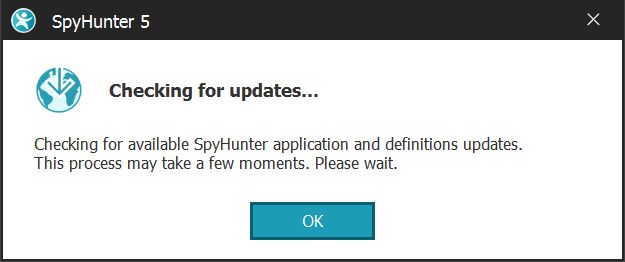
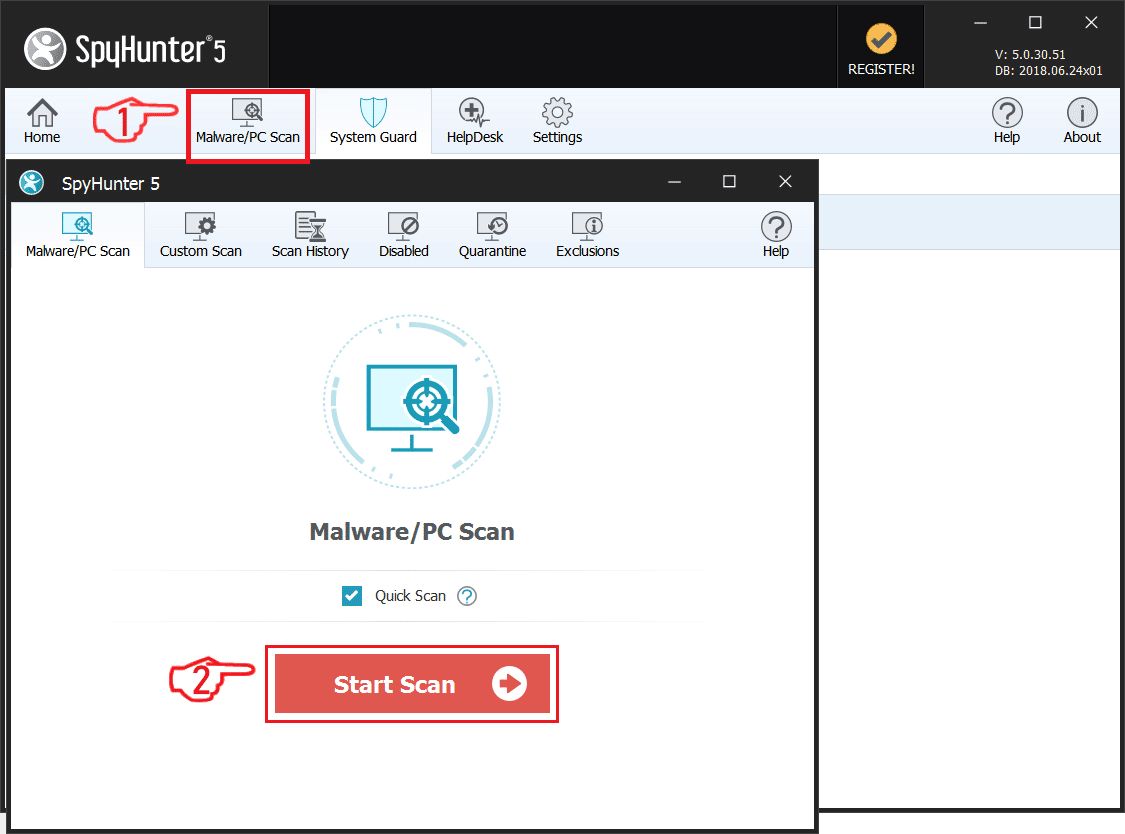
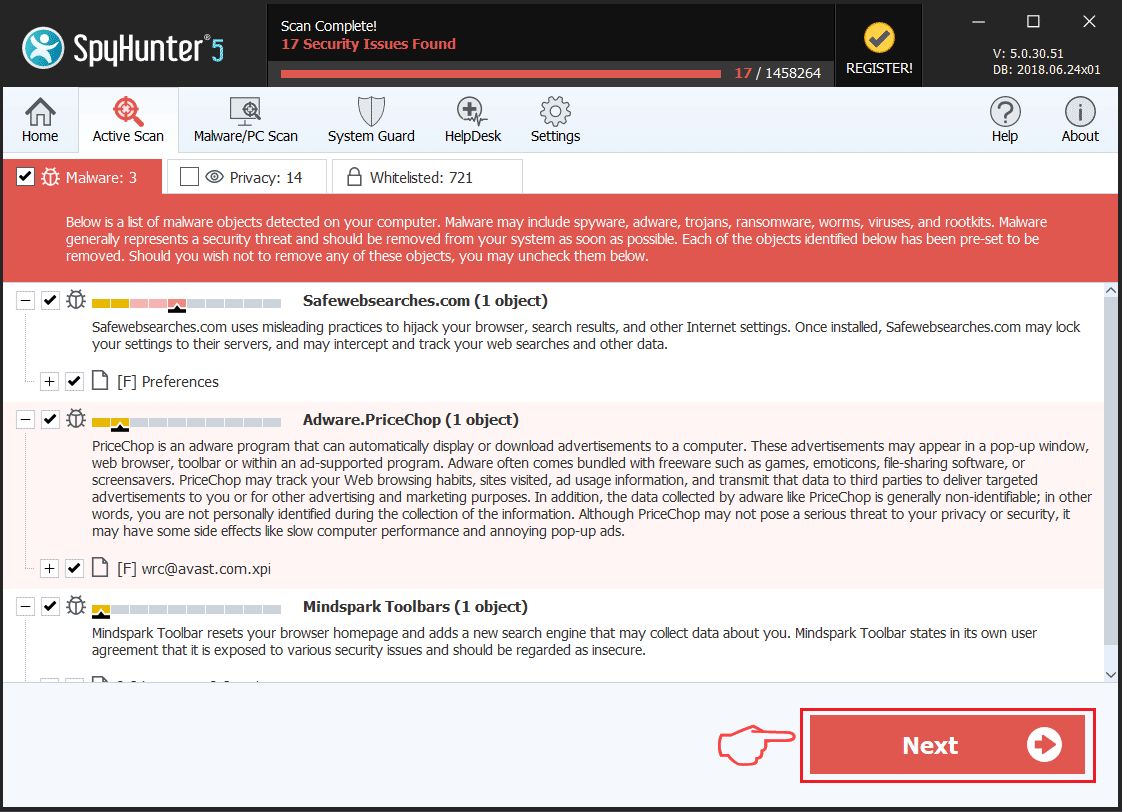
Step 2: Boot Your PC In Safe Mode

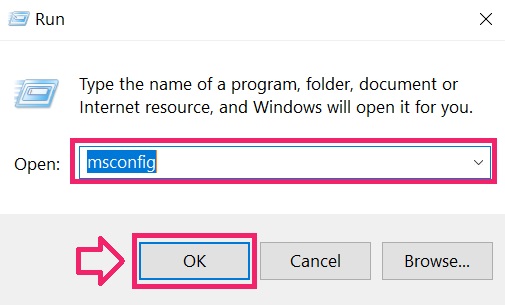
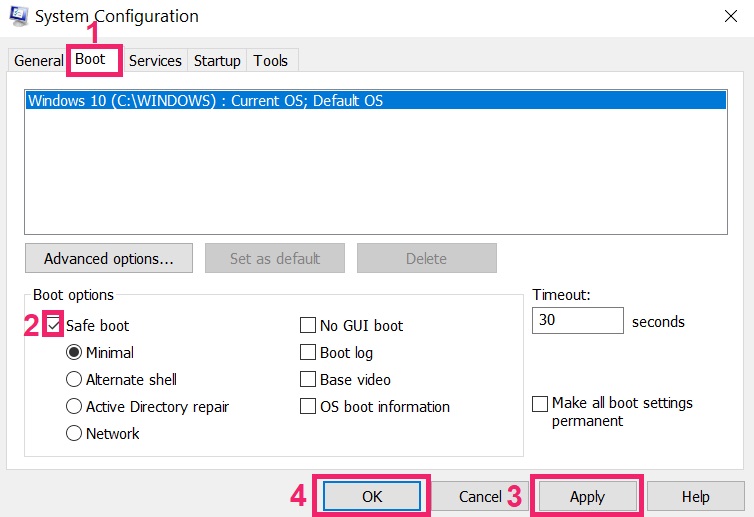


Step 3: Uninstall Alpha Search and related software from Windows
Uninstall Steps for Windows 11
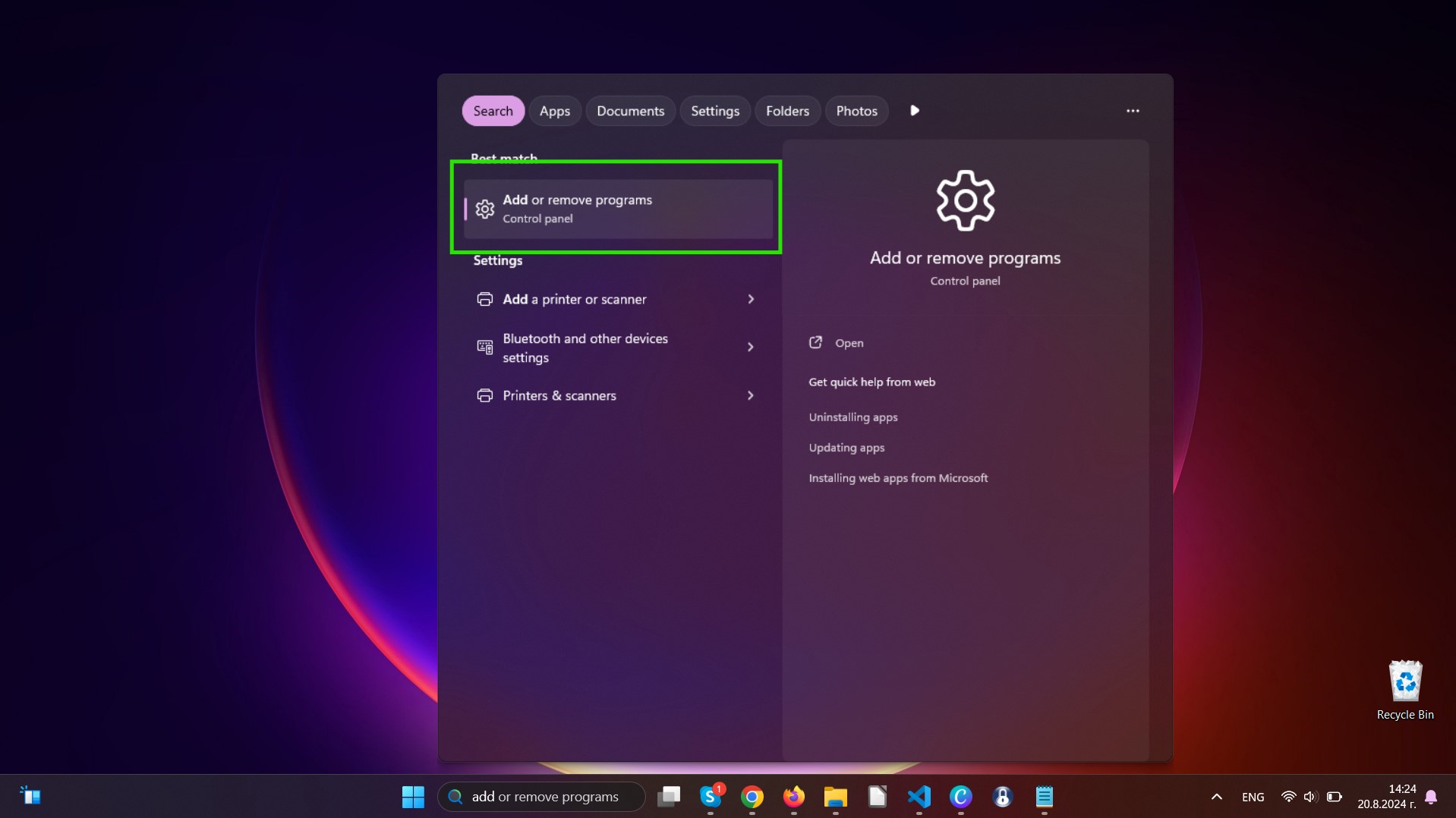
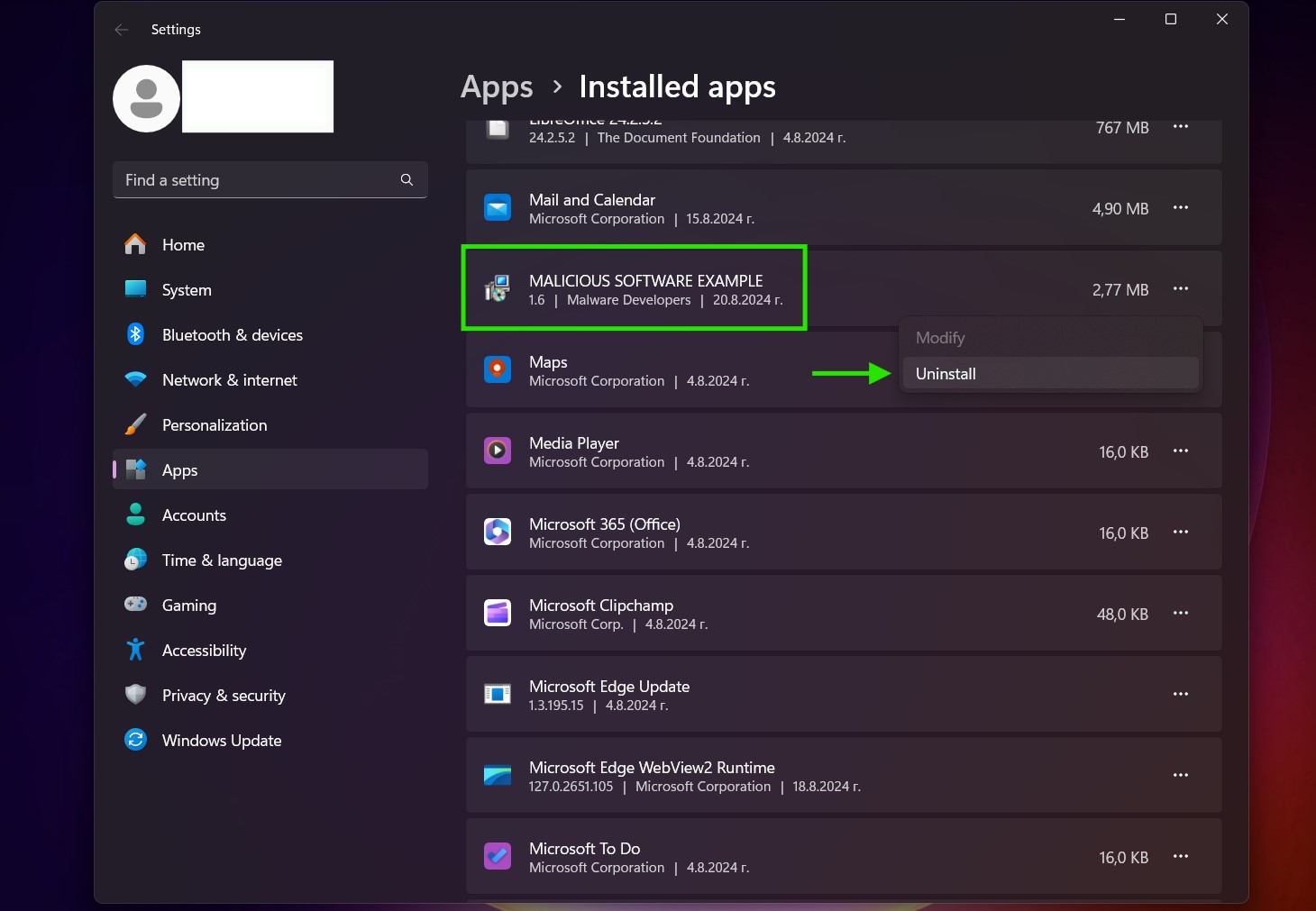
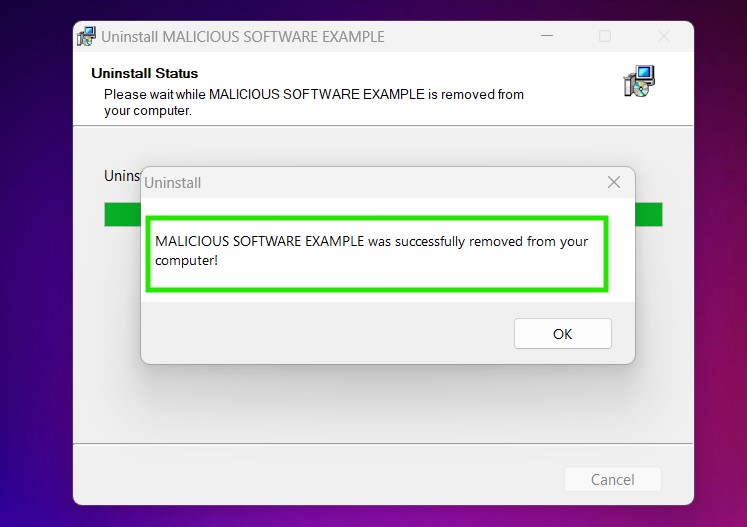
Uninstall Steps for Windows 10 and Older Versions
Here is a method in few easy steps that should be able to uninstall most programs. No matter if you are using Windows 10, 8, 7, Vista or XP, those steps will get the job done. Dragging the program or its folder to the recycle bin can be a very bad decision. If you do that, bits and pieces of the program are left behind, and that can lead to unstable work of your PC, errors with the file type associations and other unpleasant activities. The proper way to get a program off your computer is to Uninstall it. To do that:

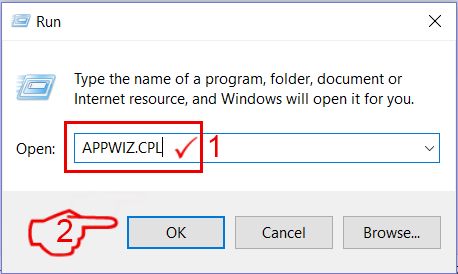
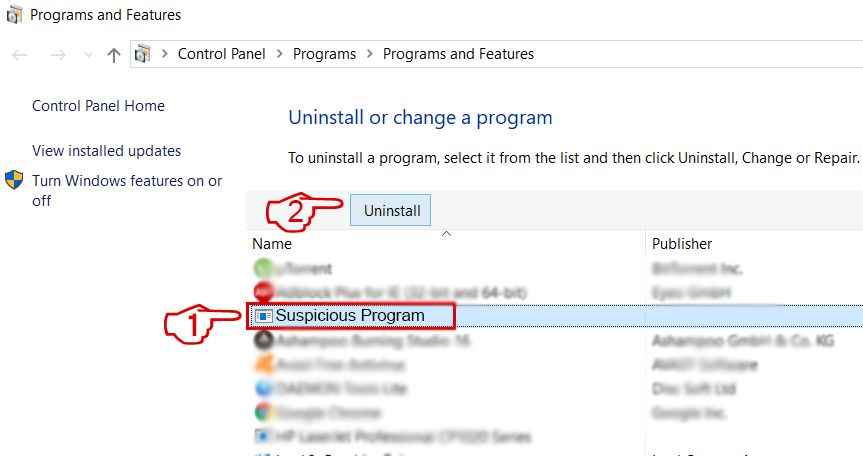 Follow the instructions above and you will successfully uninstall most programs.
Follow the instructions above and you will successfully uninstall most programs.
Step 4: Clean Any registries, Created by Alpha Search on Your PC.
The usually targeted registries of Windows machines are the following:
- HKEY_LOCAL_MACHINE\Software\Microsoft\Windows\CurrentVersion\Run
- HKEY_CURRENT_USER\Software\Microsoft\Windows\CurrentVersion\Run
- HKEY_LOCAL_MACHINE\Software\Microsoft\Windows\CurrentVersion\RunOnce
- HKEY_CURRENT_USER\Software\Microsoft\Windows\CurrentVersion\RunOnce
You can access them by opening the Windows registry editor and deleting any values, created by Alpha Search there. This can happen by following the steps underneath:
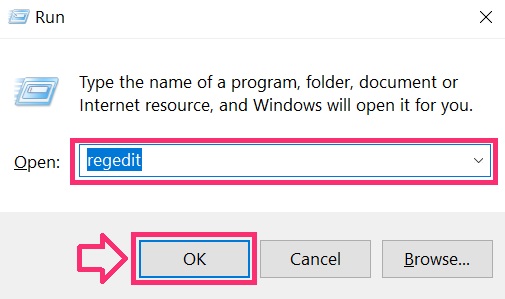

 Tip: To find a virus-created value, you can right-click on it and click "Modify" to see which file it is set to run. If this is the virus file location, remove the value.
Tip: To find a virus-created value, you can right-click on it and click "Modify" to see which file it is set to run. If this is the virus file location, remove the value.
Video Removal Guide for Alpha Search (Windows).
Get rid of Alpha Search from Mac OS X.
Step 1: Uninstall Alpha Search and remove related files and objects

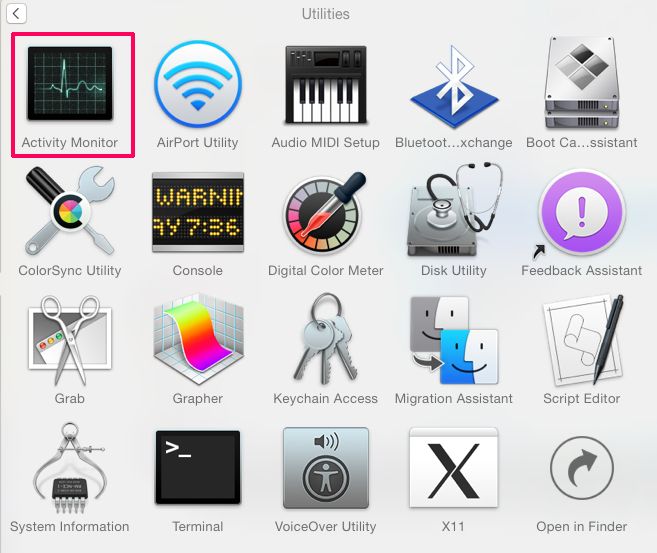
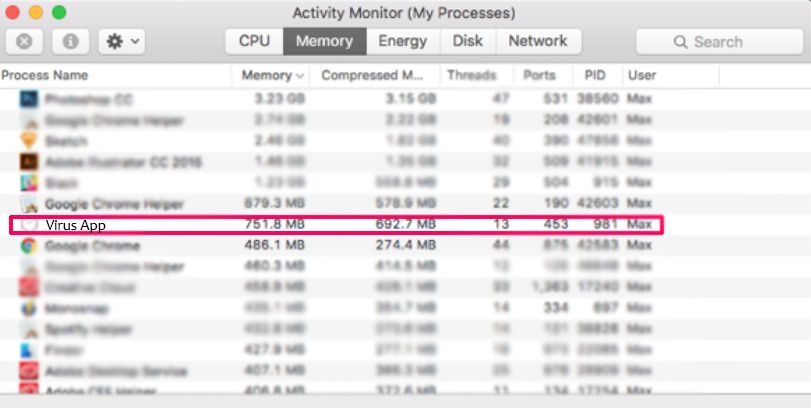
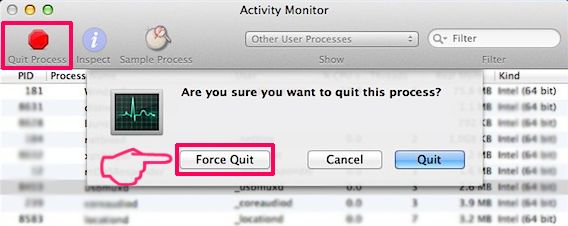

Your Mac will then show you a list of items that start automatically when you log in. Look for any suspicious apps identical or similar to Alpha Search. Check the app you want to stop from running automatically and then select on the Minus (“-“) icon to hide it.
- Go to Finder.
- In the search bar type the name of the app that you want to remove.
- Above the search bar change the two drop down menus to “System Files” and “Are Included” so that you can see all of the files associated with the application you want to remove. Bear in mind that some of the files may not be related to the app so be very careful which files you delete.
- If all of the files are related, hold the ⌘+A buttons to select them and then drive them to “Trash”.
In case you cannot remove Alpha Search via Step 1 above:
In case you cannot find the virus files and objects in your Applications or other places we have shown above, you can manually look for them in the Libraries of your Mac. But before doing this, please read the disclaimer below:



You can repeat the same procedure with the following other Library directories:
→ ~/Library/LaunchAgents
/Library/LaunchDaemons
Tip: ~ is there on purpose, because it leads to more LaunchAgents.
Step 2: Scan for and remove Alpha Search files from your Mac
When you are facing problems on your Mac as a result of unwanted scripts and programs such as Alpha Search, the recommended way of eliminating the threat is by using an anti-malware program. SpyHunter for Mac offers advanced security features along with other modules that will improve your Mac’s security and protect it in the future.
Video Removal Guide for Alpha Search (Mac)
Remove Alpha Search from Google Chrome.
Step 1: Start Google Chrome and open the drop menu

Step 2: Move the cursor over "Tools" and then from the extended menu choose "Extensions"
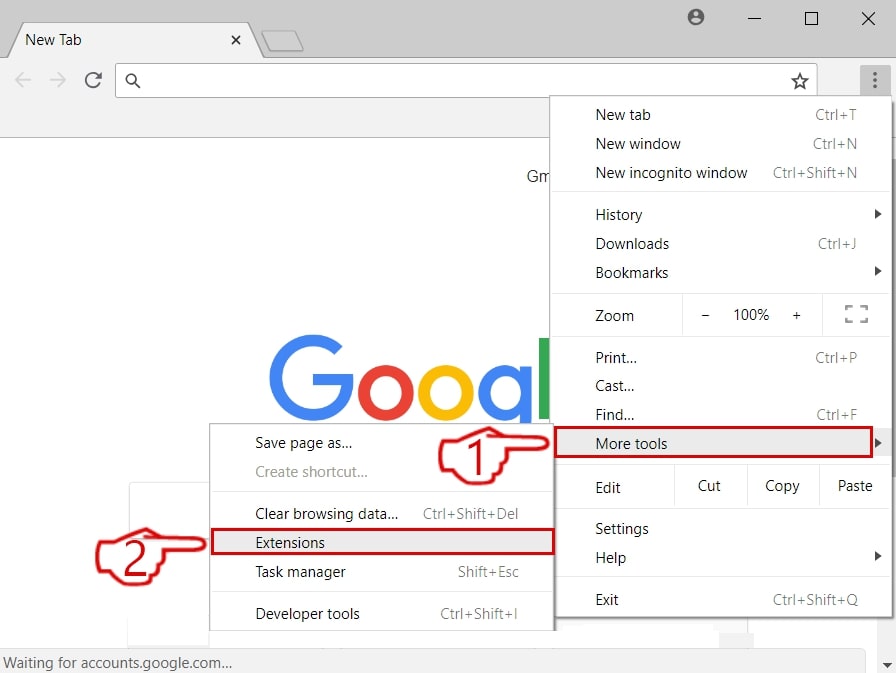
Step 3: From the opened "Extensions" menu locate the unwanted extension and click on its "Remove" button.
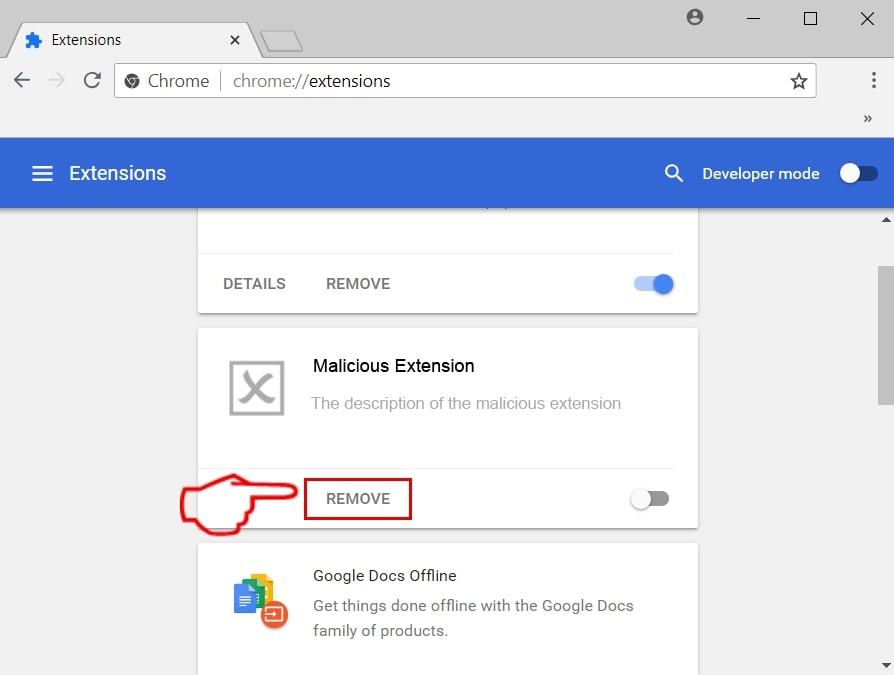
Step 4: After the extension is removed, restart Google Chrome by closing it from the red "X" button at the top right corner and start it again.
Erase Alpha Search from Mozilla Firefox.
Step 1: Start Mozilla Firefox. Open the menu window:
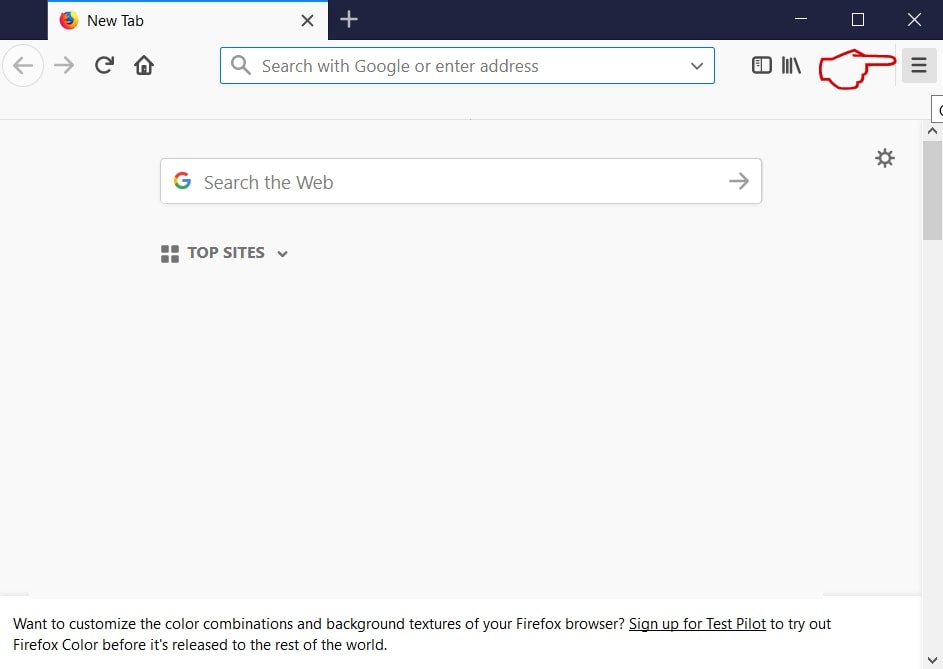
Step 2: Select the "Add-ons" icon from the menu.
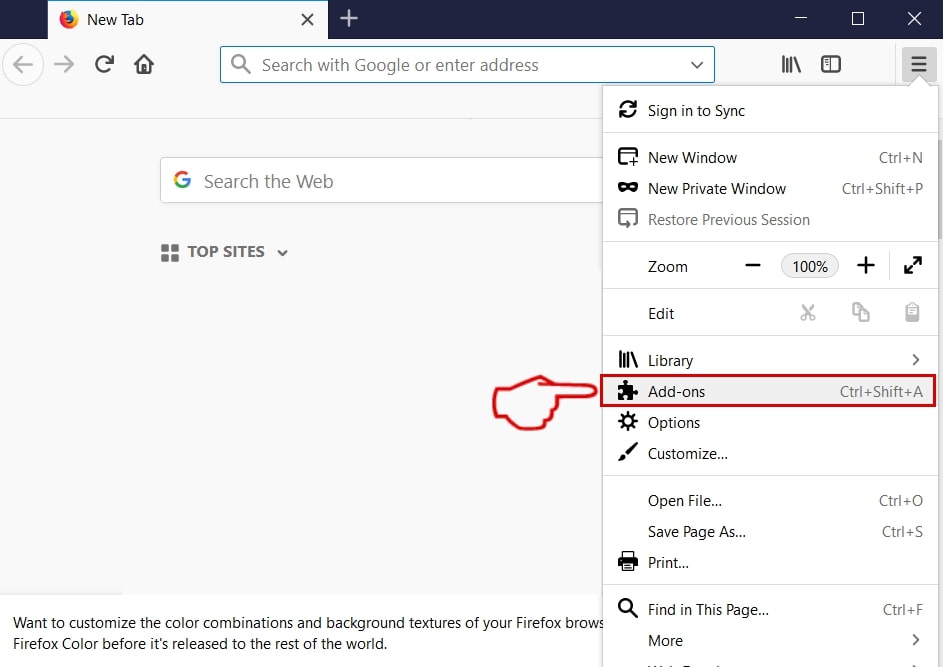
Step 3: Select the unwanted extension and click "Remove"

Step 4: After the extension is removed, restart Mozilla Firefox by closing it from the red "X" button at the top right corner and start it again.
Uninstall Alpha Search from Microsoft Edge.
Step 1: Start Edge browser.
Step 2: Open the drop menu by clicking on the icon at the top right corner.

Step 3: From the drop menu select "Extensions".
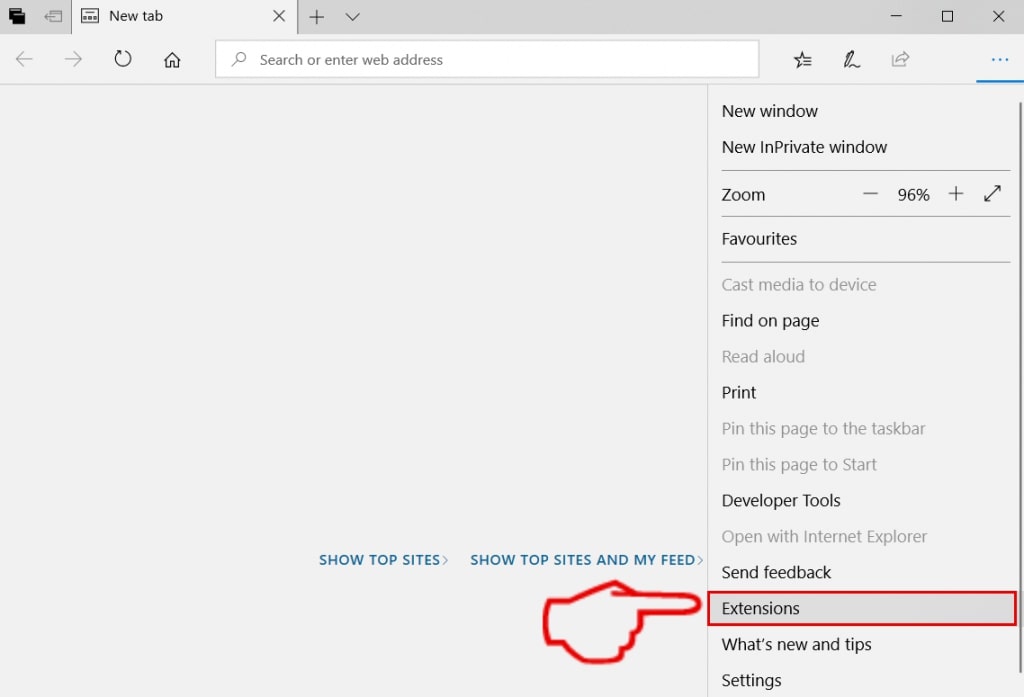
Step 4: Choose the suspected malicious extension you want to remove and then click on the gear icon.
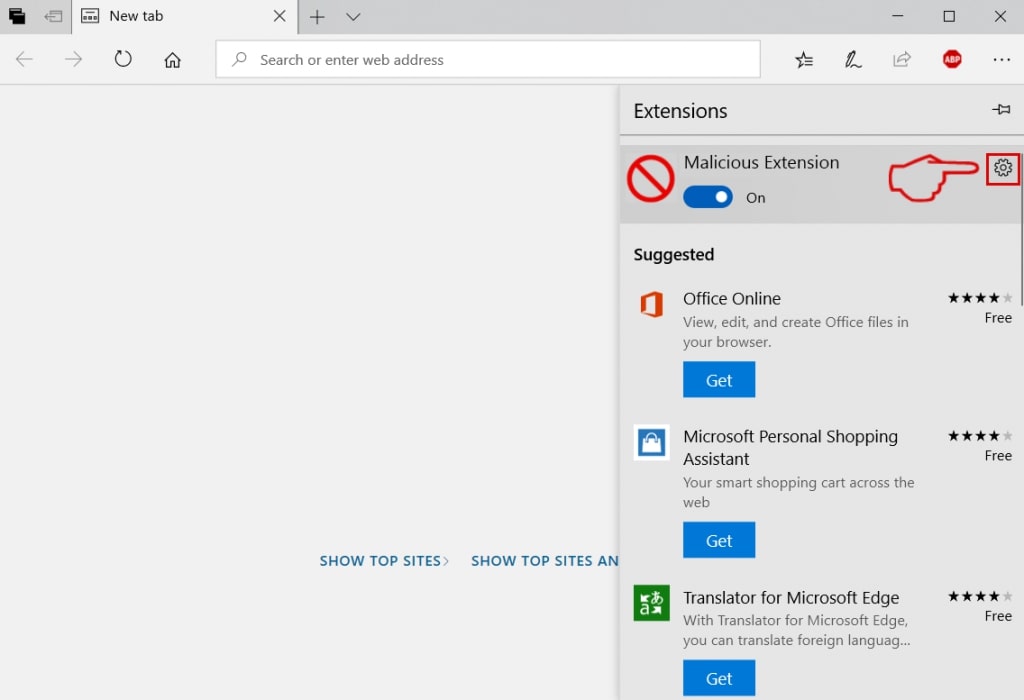
Step 5: Remove the malicious extension by scrolling down and then clicking on Uninstall.
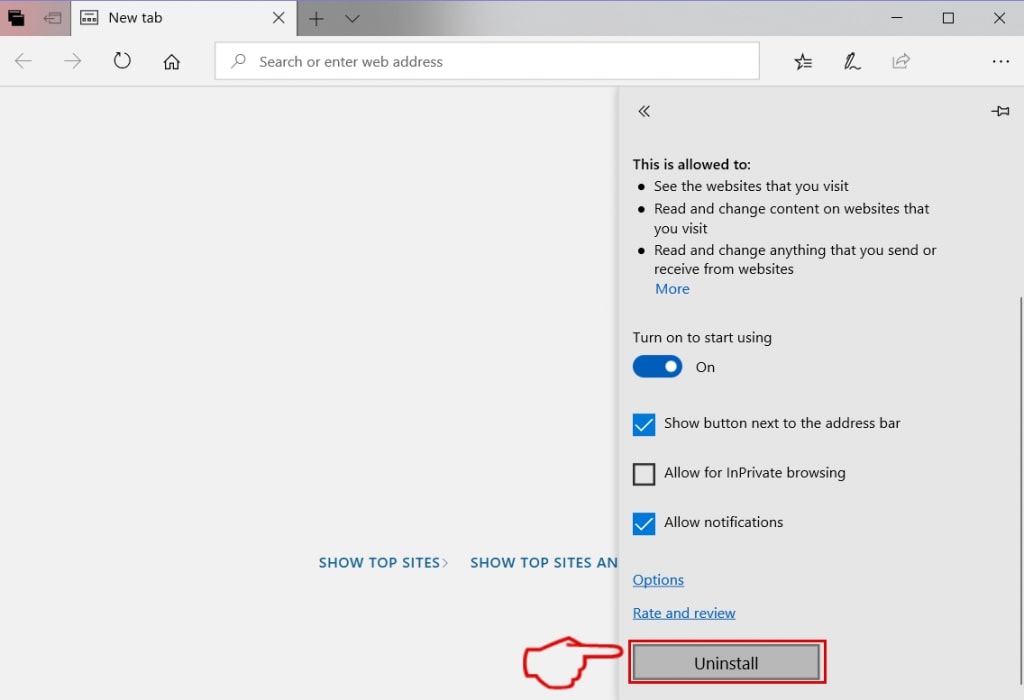
Remove Alpha Search from Safari
Step 1: Start the Safari app.
Step 2: After hovering your mouse cursor to the top of the screen, click on the Safari text to open its drop down menu.
Step 3: From the menu, click on "Preferences".

Step 4: After that, select the 'Extensions' Tab.

Step 5: Click once on the extension you want to remove.
Step 6: Click 'Uninstall'.
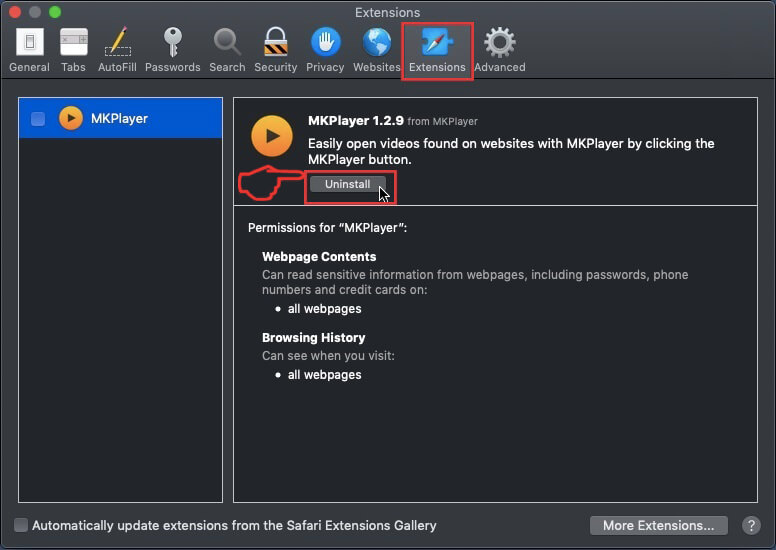
A pop-up window will appear asking for confirmation to uninstall the extension. Select 'Uninstall' again, and the Alpha Search will be removed.
Eliminate Alpha Search from Internet Explorer.
Step 1: Start Internet Explorer.
Step 2: Click on the gear icon labeled 'Tools' to open the drop menu and select 'Manage Add-ons'

Step 3: In the 'Manage Add-ons' window.
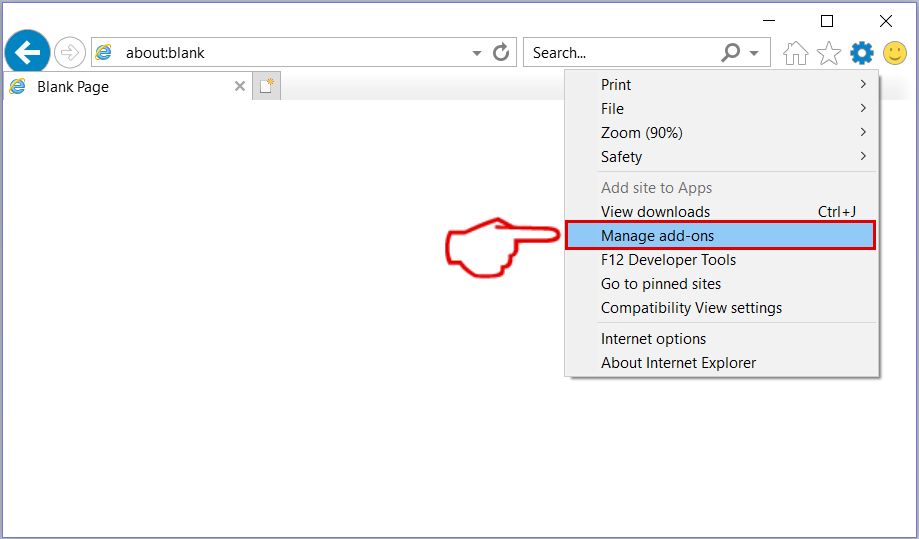
Step 4: Select the extension you want to remove and then click 'Disable'. A pop-up window will appear to inform you that you are about to disable the selected extension, and some more add-ons might be disabled as well. Leave all the boxes checked, and click 'Disable'.
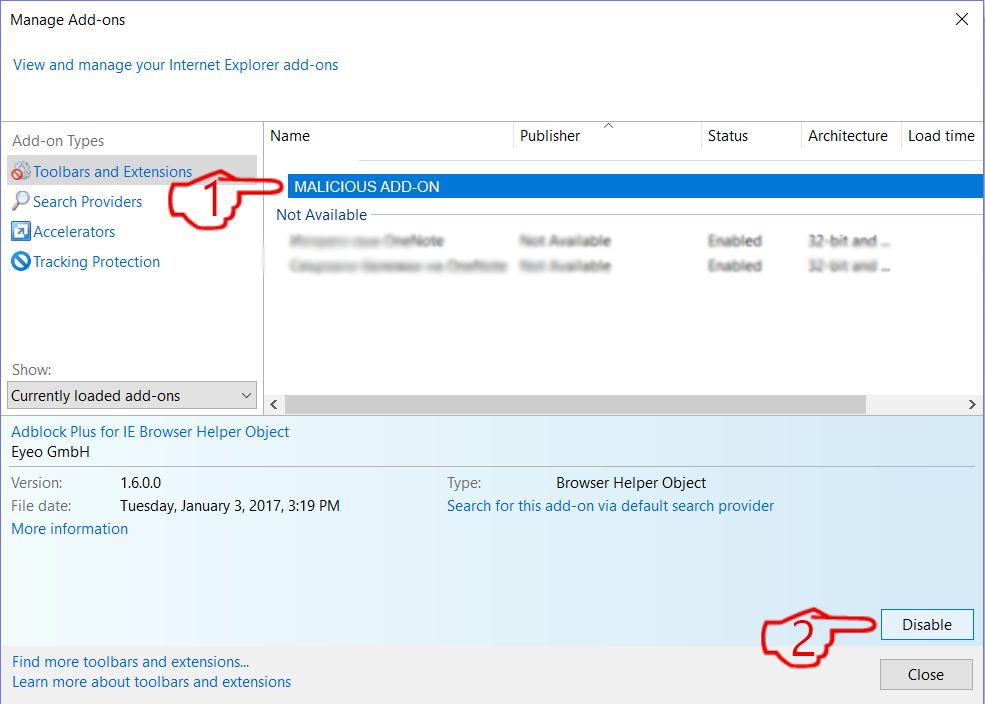
Step 5: After the unwanted extension has been removed, restart Internet Explorer by closing it from the red 'X' button located at the top right corner and start it again.
Remove Push Notifications from Your Browsers
Turn Off Push Notifications from Google Chrome
To disable any Push Notices from Google Chrome browser, please follow the steps below:
Step 1: Go to Settings in Chrome.

Step 2: In Settings, select “Advanced Settings”:

Step 3: Click “Content Settings”:
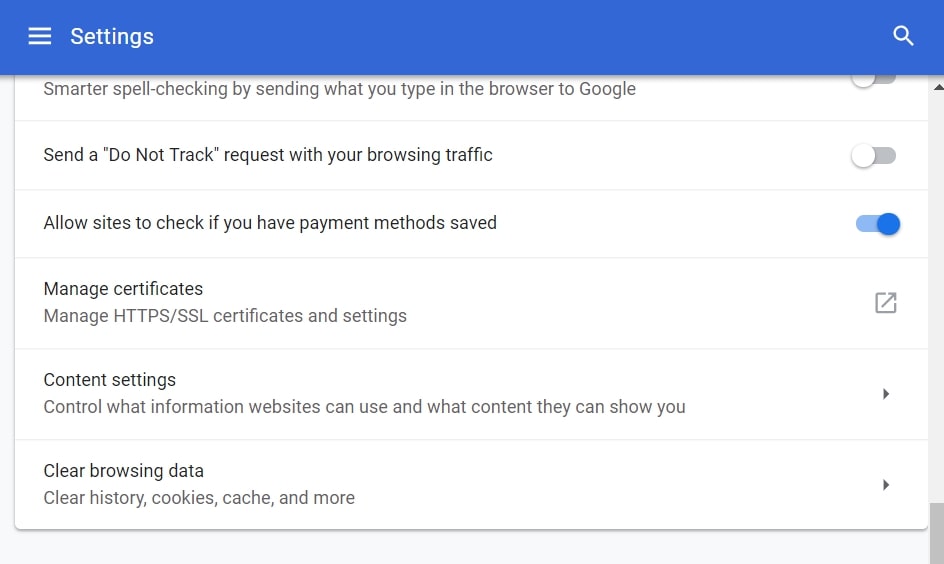
Step 4: Open “Notifications”:

Step 5: Click the three dots and choose Block, Edit or Remove options:

Remove Push Notifications on Firefox
Step 1: Go to Firefox Options.

Step 2: Go to “Settings”, type “notifications” in the search bar and click "Settings":
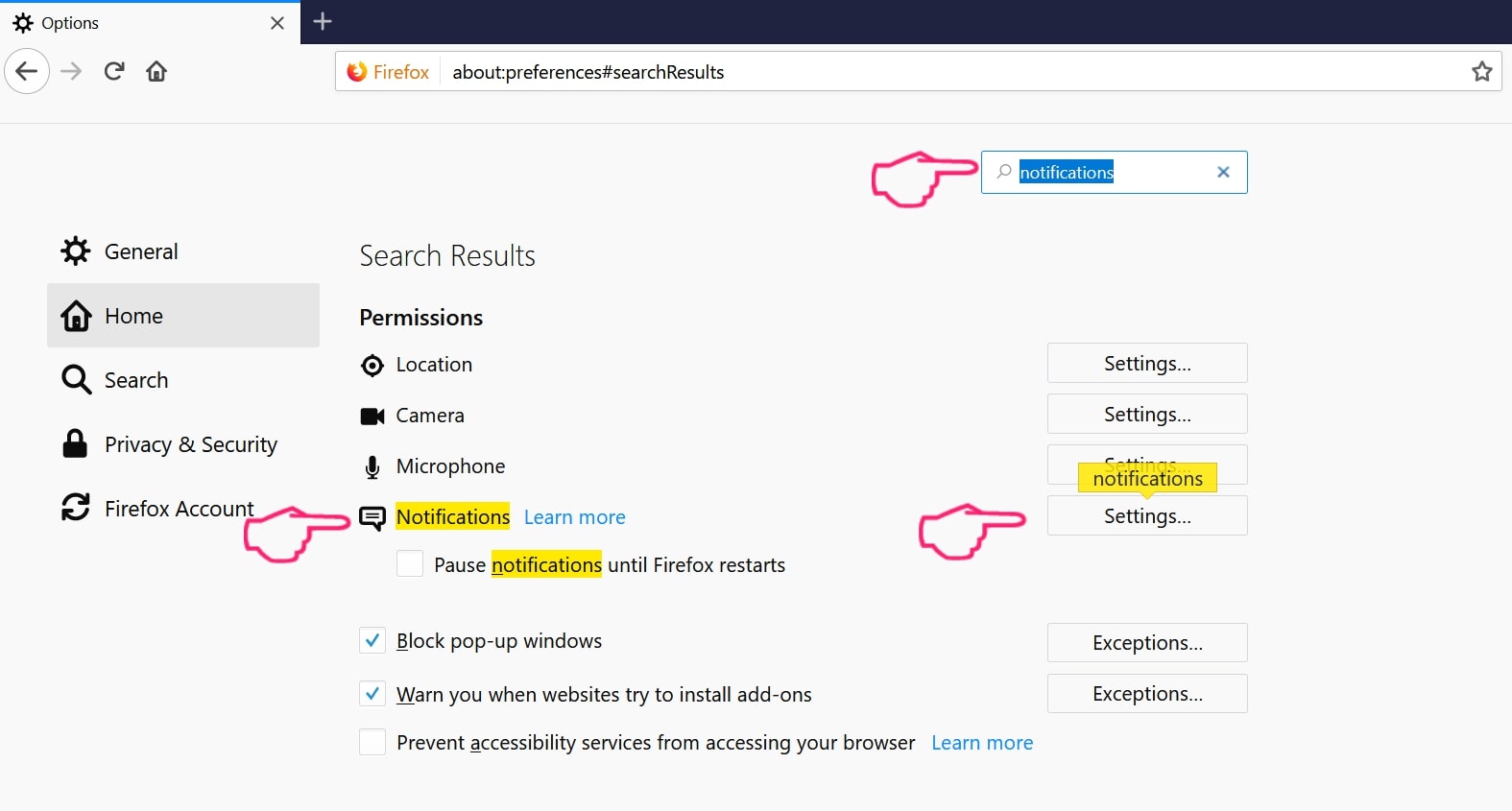
Step 3: Click “Remove” on any site you wish notifications gone and click “Save Changes”
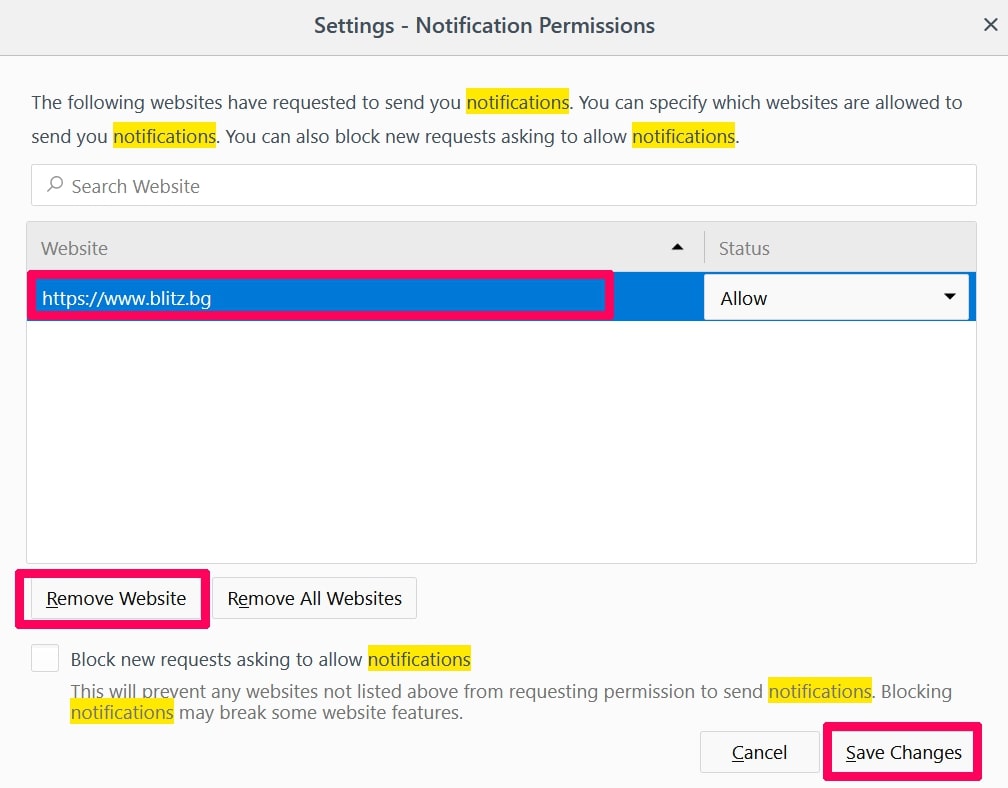
Stop Push Notifications on Opera
Step 1: In Opera, press ALT+P to go to Settings.

Step 2: In Setting search, type “Content” to go to Content Settings.
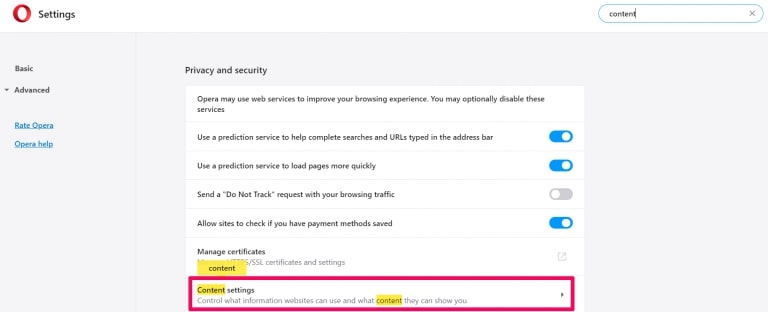
Step 3: Open Notifications:
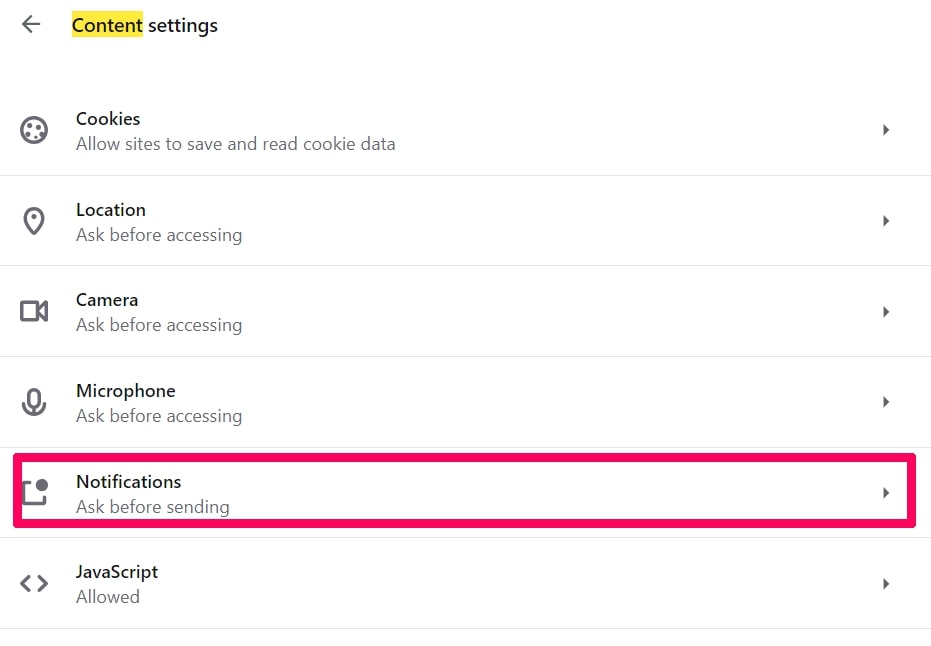
Step 4: Do the same as you did with Google Chrome (explained below):

Eliminate Push Notifications on Safari
Step 1: Open Safari Preferences.
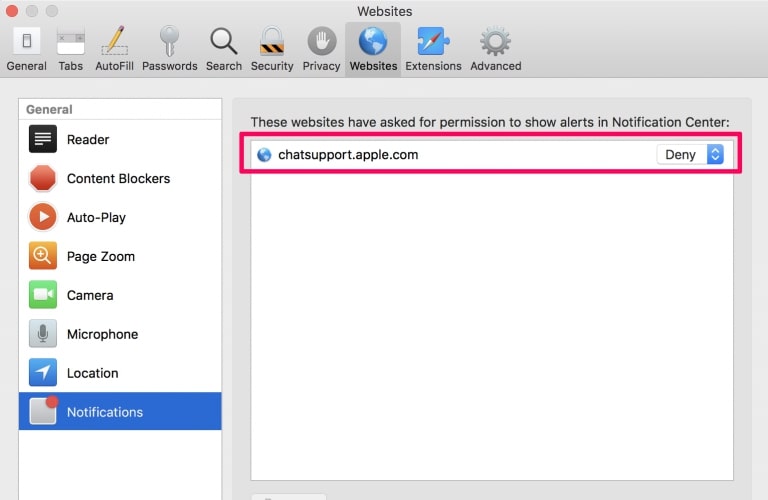
Step 2: Choose the domain from where you like push pop-ups gone and change to "Deny" from "Allow".
Alpha Search-FAQ
What Is Alpha Search?
The Alpha Search threat is adware or browser redirect virus.
It may slow your computer down significantly and display advertisements. The main idea is for your information to likely get stolen or more ads to appear on your device.
The creators of such unwanted apps work with pay-per-click schemes to get your computer to visit risky or different types of websites that may generate them funds. This is why they do not even care what types of websites show up on the ads. This makes their unwanted software indirectly risky for your OS.
What Are the Symptoms of Alpha Search?
There are several symptoms to look for when this particular threat and also unwanted apps in general are active:
Symptom #1: Your computer may become slow and have poor performance in general.
Symptom #2: You have toolbars, add-ons or extensions on your web browsers that you don't remember adding.
Symptom #3: You see all types of ads, like ad-supported search results, pop-ups and redirects to randomly appear.
Symptom #4: You see installed apps on your Mac running automatically and you do not remember installing them.
Symptom #5: You see suspicious processes running in your Task Manager.
If you see one or more of those symptoms, then security experts recommend that you check your computer for viruses.
What Types of Unwanted Programs Are There?
According to most malware researchers and cyber-security experts, the threats that can currently affect your device can be rogue antivirus software, adware, browser hijackers, clickers, fake optimizers and any forms of PUPs.
What to Do If I Have a "virus" like Alpha Search?
With few simple actions. First and foremost, it is imperative that you follow these steps:
Step 1: Find a safe computer and connect it to another network, not the one that your Mac was infected in.
Step 2: Change all of your passwords, starting from your email passwords.
Step 3: Enable two-factor authentication for protection of your important accounts.
Step 4: Call your bank to change your credit card details (secret code, etc.) if you have saved your credit card for online shopping or have done online activities with your card.
Step 5: Make sure to call your ISP (Internet provider or carrier) and ask them to change your IP address.
Step 6: Change your Wi-Fi password.
Step 7: (Optional): Make sure to scan all of the devices connected to your network for viruses and repeat these steps for them if they are affected.
Step 8: Install anti-malware software with real-time protection on every device you have.
Step 9: Try not to download software from sites you know nothing about and stay away from low-reputation websites in general.
If you follow these recommendations, your network and all devices will become significantly more secure against any threats or information invasive software and be virus free and protected in the future too.
How Does Alpha Search Work?
Once installed, Alpha Search can collect data using trackers. This data is about your web browsing habits, such as the websites you visit and the search terms you use. It is then used to target you with ads or to sell your information to third parties.
Alpha Search can also download other malicious software onto your computer, such as viruses and spyware, which can be used to steal your personal information and show risky ads, that may redirect to virus sites or scams.
Is Alpha Search Malware?
The truth is that PUPs (adware, browser hijackers) are not viruses, but may be just as dangerous since they may show you and redirect you to malware websites and scam pages.
Many security experts classify potentially unwanted programs as malware. This is because of the unwanted effects that PUPs can cause, such as displaying intrusive ads and collecting user data without the user’s knowledge or consent.
About the Alpha Search Research
The content we publish on SensorsTechForum.com, this Alpha Search how-to removal guide included, is the outcome of extensive research, hard work and our team’s devotion to help you remove the specific, adware-related problem, and restore your browser and computer system.
How did we conduct the research on Alpha Search?
Please note that our research is based on independent investigation. We are in contact with independent security researchers, thanks to which we receive daily updates on the latest malware, adware, and browser hijacker definitions.
Furthermore, the research behind the Alpha Search threat is backed with VirusTotal.
To better understand this online threat, please refer to the following articles which provide knowledgeable details.


